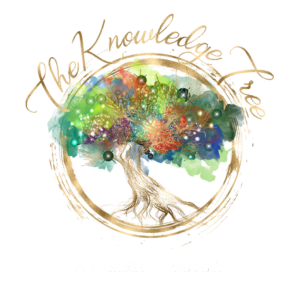Written by: Becky Beaton-York, PhD, Founder & Director of The Knowledge Tree
Content Series – Part 2
The holiday season often carries an invisible weight – not just for clients, but for many of us who sit across from them. It’s a time when joy and grief seem to share the same space. Clients may come in smiling about reunions or traditions, then pause and admit that something feels off. ‘I should feel happy,’ they say, ‘but I also feel so sad.’
Many clinicians recognize this paradox as one of the most human experiences of all—the coexistence of joy and sorrow. Rather than pathologizing that tension, therapy acknowledges and makes room for both.
Holidays tend to activate emotional memory. It’s the classic tale of revisiting the ghosts of relationships past – people lost, roles changed, expectations unmet. All at once, they might experience gratitude, love, hope, fear, anticipation, and anxiety. The combination can be confusing, especially as many tend to lean into singular and defined emotions accompanied by tidy narratives.
Addressing ambivalence and claiming it as a normal part of emotional life can be deeply relieving. When clients say, ‘I’m excited to see my family, but anxious about the dynamics,’ or ‘I feel lucky and guilty at the same time,’ our role is not to fix the contradiction, but to help them stay with it and better understand it. What matters most is modeling curiosity and compassion toward the contradiction. When clinicians convey comfort with ambivalence, clients learn they can navigate their own paradoxes, too.
During these sessions, our attunement becomes both a mirror and a guide. We listen for the ‘and’ where clients may be stuck in ‘or.’ By reframing it and acknowledging that both gratitude and grief are alive in this moment, clients can find self-compassion within the complexity of what they are feeling.
For many clinicians, the season stirs personal echoes. Attending to countertransference ensures that empathy remains grounded, not entangled. Brief reflective pauses…What feelings does this client’s story awaken in me…can help maintain clarity and connectivity.
Ultimately, the goal is not resolution but integration. Healing often means expanding our capacity to these emotions and memories – the joy and sorrow, light and dark – and recognizing they don’t need to cancel each other out.

About The Knowledge Tree
The Knowledge Tree, led by Dr. Becky Beaton-York, offers continuing education created for clinicians who want training that’s practical, ethical, and genuinely energizing. Becky is a licensed psychologist, a nationally recognized speaker, and the founder of The Knowledge Tree. She’s trained thousands of therapists across the country and now guides Summit’s Behavioral Health Content and Curriculum with a focus on meaningful, evidence-based learning.
Whether you’re supporting people through trauma, navigating complex clinical decisions, or looking for new ways to grow in your work, The Knowledge Tree provides courses that help you stay current, confident, and connected. Explore upcoming behavioral health programs and see what’s launching soon at
Summit’s Behavioral Health.
Enterprise and Team Purchases
Interested in a 15-month Subscription at the price of 12 or an ERP Certification?
Contact our Healthcare Enterprise Team:
groups@summit-education.com
Offer ends 12/31/2025


